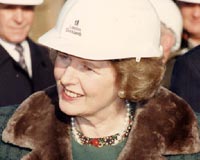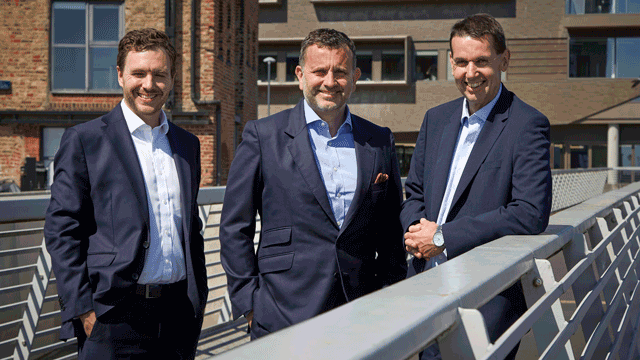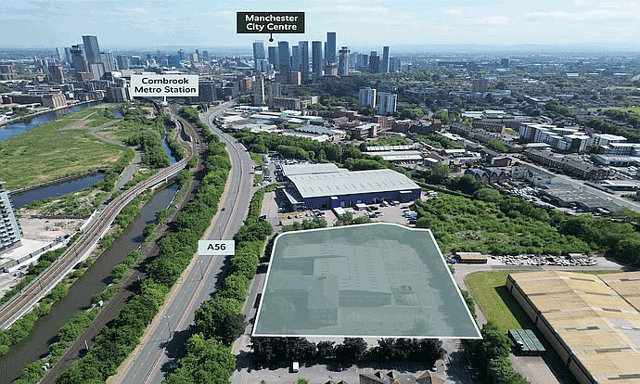“If you want something said, ask a man. If you want something done, ask a woman.”
It’s a classic Lady Thatcher quote and one that rings true when it comes to the development of Docklands in east London.
The 87-year former prime minister, who died following a stroke at The Ritz hotel in Mayfair this week, is credited with being pivotal in the success of Docklands – getting the massive project going, making sure public sector nonsense did not impede progress and ironing out any chinks that threatened to stop development along the way.
FTI chairman Anthony Danaher, who was part of the London Dockland Development Corporation set up by Thatcher’s government in 1981, says the UK’s first female PM was “property’s greatest friend”.
Three attempts to develop Docklands were made before Thatcher came to power, but only the Iron Lady managed to get the project moving.
“It was indisputably her involvement that made Docklands work,” says Danaher. “She gave us the organisational freedom to operate as a private business and kept the civil servants off our backs. She would show up at every pivotal moment, bringing the world’s press with her and would personally intervene if issues arose to ensure blockages were removed so that progress could be maintained.”
Delivering the power
While the LDDC did not have a huge amount of money – it was financed by a grant from central government and proceeds from land sales – Thatcher ensured that it had the powers crucial to delivering regeneration.
They comprised land ownership: the LDDC took charge of some 800 acres of public land, which allowed it to enter into commercial deals with developers; planning: the body had the right to determine applications, speeding up the development process; and the power to broker and enter into contracts.
Thatcher also drove the establishment of an enterprise zone at Docklands, which offered attractive tax breaks to occupiers and investors.
But it was the PM’s phone call to Paul Reichmann, head of Canadian developer Olympia & York, in 1987 that really got Docklands going. Her flattery and persistence got the developer of New York’s World Financial Centre to send five of its men over to London to check the project out. These included Sir George Iacobescu, now chief executive of Canary Wharf Group.
By 1991, Olympia & York had built 4.5m sq ft of offices at Canary Wharf, but spent more than £2bn on infrastructure – a cost that it thought the UK government might help with and a cost that ultimately led to O&Y’s demise.
But Reichmann eventually regained control of the business, rebuilding it into the Canary Wharf Group we know today.
While many who lived through the 1980s and 1990s may have less-than-fond memories of Thatcher, the former PM has to be credited with some major achievements: Canary Wharf, bringing Nissan to Wearside through the establishment of a similar vehicle to the LDDC, and the Right-to-Buy scheme.
“Thatcher’s administration was the first time I can recall a government seeing the connection between a vibrant property sector and a healthy economy,” says Danaher. “We could maybe do with a bit more of that today.”
The property industry remembers…
Sir John Ritblat, president, British Land
“She persuaded Reichmann to develop Canary Wharf. He thought she would implement the infrastructure and deliver civil servants to fill 2m sq ft, but it was not within her gift. It went bust first time around, but has since become a real success.”
Sir George Iacobescu, Canary Wharf Group
“Several years ago Margaret Thatcher revisited Canary Wharf. We toured some of the malls that were busy with workers and visitors. The reaction was extraordinary. It was easy to see how one woman could have had such an impact on history.”
Nigel Hugill, Urban&Civic
“There can be no question that she was good for London. The consequences for the rest of the country are obviously less clear-cut but those who argue over her determination against state commercial involvement should examine the full costs of the RDA excursion.”
Nick Leslau, Prestbury Investments
“She took no prisoners but she had to be like that in order to achieve what she did. Regeneration was one of her legacies – it was incredibly important for her. I wouldn’t necessarily say all EZs were a success, but many were.”
A colleague’s view…
Rt Hon John Gummer, Lord Deben, former environment secretary
She was a star, there’s no doubt about that. Even her strongest detractors admit that Margaret Thatcher was no ordinary politician. She changed the face of Britain when change was sorely needed. There are those who say it could have been done with less pain and less hurt, particularly in the communities which were one-industry dependent. The coal mining villages, the steel towns, and the shipbuilding centres, all of them suffered disproportionately. Yet, that was inevitable. For years they had been propped up by the taxpayer: less and less profitable: less and less competitive. Their end was inevitable and the blame must be laid at the door of all those politicians, Labour and Conservative, who had pretended for so long that radical action was not necessary, that the subsidies could continue for ever, and that there was an easy way out.
Thatcher was the first to tell the truth and act upon it. She wished it could be otherwise but this was the last chance saloon for Britain. We had been written off by the rest of the world. We had suffered the Winter of Discontent. Our industries were uncompetitive, our trades unions rampantly destructive. Inflation raged, productivity fell, and many thought us ungovernable. Wherever the British went, people commiserated for what they read about our decline. We must never forget how devastatingly dreadful was the reality and the reputation. Our Ambassador in Paris, in his farewell telegram to David Owen, the Labour Government’s Foreign Secretary, warned that Britain had been written off by our European partners. The situation was truly dire.
Mrs Thatcher was not a hard woman. Indeed, she was individually and universally kind. Every night during the Falklands War she wrote in her own hand to the families of every serviceman who had died in battle. These were not short notes but real letters explaining the circumstances of the death of a son or husband and the importance of their mission. She never went to bed until she had completed this task. In the same way she was remembered for thousands of acts of unsung kindness to the people she worked with or simply came across. She was always the first to think of their needs and their comfort
It was that assiduity and dutiful determination which led to her tough economic stance. She could see how close we were to complete disaster and she was determined to avoid it. She insisted on facing the truth and acting on it. The solution was bound to be rough and tough, simply because it had been left so late. Had Wilson tried; had Ted Heath been given the chance; had Callaghan understood the problem, we might have had time to craft a gentler, slower, solution. But they didn’t try, they didn’t have the chance, they didn’t understand. So, there was no time. Margaret Thatcher recognised that and she did what had to be done.
The restoration of the British economy, the recovery of our pride, the return of our self-respect and our self-belief – this was her task and this her achievement. She believed that if you gave people the chance to be responsible, to make their own decisions, and to stand on their own feet, they would do it and you would see the difference. That is why the sale of council houses was so central to her beliefs. She understood the desire of most ordinary people to own their own house. She also understood that such ownership is the basis of a free society. As long as huge swathes of the population lived in homes owned by the local Council, their wings would be clipped and their opportunities stifled. The right to buy was a policy aimed at setting the people free and giving them a sense of their own intrinsic worth.
And she wanted that passionately. She really did believe in freedom and she is remembered in the countries which have emerged from Communism as their staunchest and most determined ally. Freedom at home and freedom abroad. She faced down the dictator of Argentina, stood firm against the IRA, pulled the US into the defence of Kuwait, and brought Gorbachev out of the Soviet bunker. All of it was about freedom – from Union bullies, Argentine troops, Soviet tanks – it was all the same motivating force.
Of course, she wasn’t always right. Her patriotism was real but it could not easily comprehend the world of today. She wanted the Single Market but she couldn’t come to terms with the need for real European co-operation. She never saw anything but the best in America and could not appreciate what a formidable competitor it was and how naive was its prosecution of foreign policy. She wasn’t at home in the cosmopolitan world that is Britain today. Yet, without her, we could never have emerged from terminal decline. May she rest in peace.











